7 foods that lower your cholesterol
There’s good evidence that following a heart-healthy diet can improve your blood cholesterol and heart health. Find out which foods are best at helping to lower your cholesterol.

What is cholesterol?
Cholesterol is a type of fat in your blood which is produced naturally by your body. It’s also found in some foods like eggs, offal (such as kidney and liver) and shellfish. Your body needs some cholesterol for it to work properly.
When you have high cholesterol levels in the blood (also called hyperlipidaemia) it speeds up the process of atherosclerosis. This is when plaque builds up in your artery walls, making them narrower. This makes it hard for blood to flow through them, and over time it can cause a heart attack or stroke.
Types of cholesterol
High cholesterol doesn’t show any symptoms. You need a blood test to find out if you have it. The blood test will tell you the levels of ‘good’ and ‘bad’ cholesterol in your blood (explained below).
Cholesterol is carried around the body by different ‘carriers’ (also called lipoproteins). The two most common are:
- Low density lipoprotein (LDL) cholesterol: the ‘bad’ cholesterol. LDL cholesterol is ‘bad’ because if you have too much it gets stuck to the walls of your arteries
- High density lipoprotein (HDL) cholesterol: the ‘good’ cholesterol. HDL cholesterol is ‘good’ because it gets rid of ‘bad’ cholesterol from your blood vessels.
Triglycerides are the most common form of fat in your body and store and transport fat in the blood. Any extra energy from food that your body doesn’t need is turned into triglycerides.
High total blood cholesterol is a measure of all the cholesterol and triglycerides in your blood and is a risk factor for developing heart disease1.
Can my diet help my cholesterol?
Eating certain foods can help improve your cholesterol and overall heart health.
The best place to start is to eat a wide variety of plant foods. These include:
- vegetables
- fruit
- legumes
- whole grains
- nut
- seeds.
Eating plant foods will help you get a range of nutrients, heart-healthy fats and fibre. These all promote optimal heart health.
7 foods that lower your cholesterol
Some foods can actively help to lower your cholesterol and they all work in different ways. Try to include these foods in your meals whenever you can:
1. Oats and barley
Eating whole grain foods reduces your risk of heart disease. Oats and barley are extra special because they are high in a type of soluble fibre called 'beta glucan'. Beta glucan helps to lower 'bad' LDL cholesterol in your blood2,3.
Tip: Flavoured oat products like 'Quick Oats' often contain added salt and/or sugar. Choose products that contain 100% oats (like rolled oats) as they're closest to how they’re found in nature.
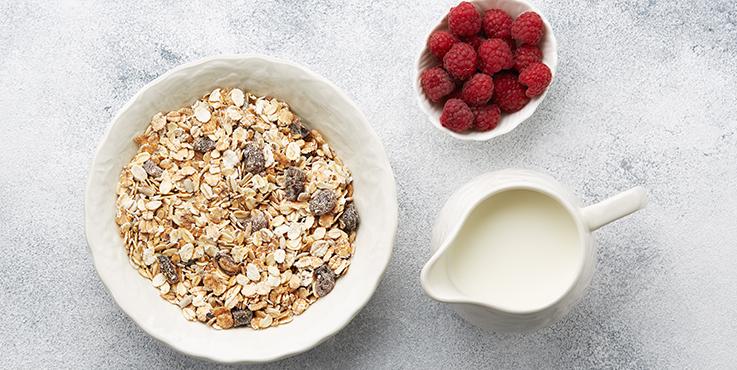
2. Vegetables and fruit
Eating a variety of colourful vegetables and fruit everyday can help protect you against heart disease, stroke and some cancers4,5. Many vegetables and fruit are high in soluble fibre which helps to reduce the absorption of cholesterol and lower 'bad' LDL cholesterol in your blood.
Tip: Leave the skins on vegetables like pumpkin, kūmara and carrot to maximise your intake of fibre. Use orange and lemon peel in dressings and sauces.
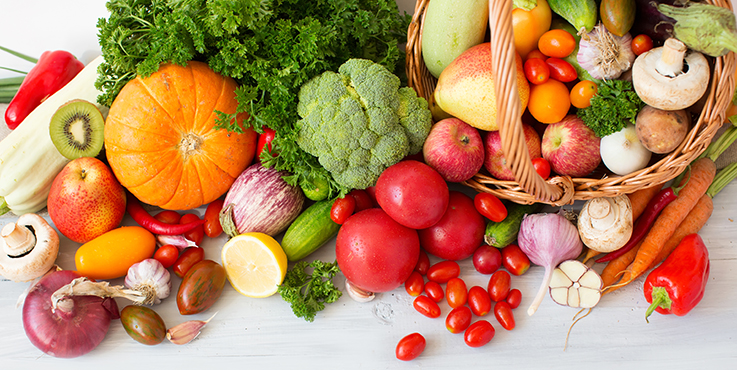
3. Foods rich in heart-healthy fats
Eating plenty of foods that contain heart-healthy mono and poly-unsaturated fats increases the levels of 'good' HDL cholesterol in your blood.
These foods contain heart-healthy fats.
- Avocado
- Oily fish like mackerel, sardines and salmon
- Nuts and seeds
- Olives
- Vegetable oils and spreads
Eating these foods instead of foods high in saturated fat (butter, cream, meat fats) improves your cholesterol. It’ll reduce your risk of heart disease too6.
Tip: Coconut, palm oil and many convenience foods are high in saturated fat and increase your ‘bad’ LDL cholesterol. Switch to heart-healthy fats and whole foods where possible.
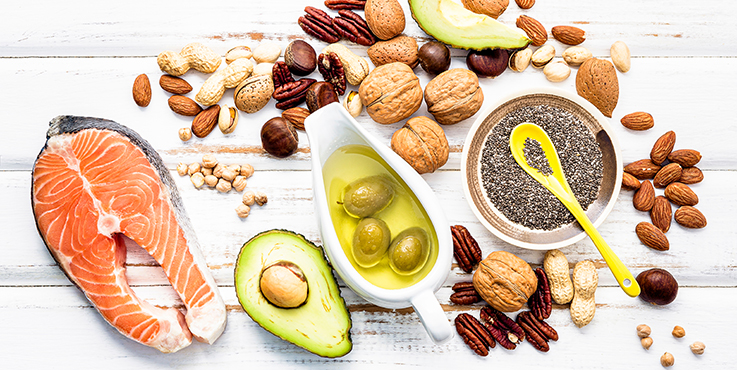
4. Legumes and beans
Legumes like chickpeas and lentils are a great source of soluble fibre and plant-based protein. Eating legumes and beans instead of meat (animal protein) can help to lower your 'bad' LDL cholesterol7.
Tip: Choose canned legumes for a quick and easy option. Rinse and drain the salty brine before using them. Use them in salads, sauces, casseroles and when making legume-based dips like hummus.

5. Nuts
Nuts contain heart-healthy fats and fibre which can help to keep your cholesterol in check. Regularly eating nuts is linked to lower levels of ‘bad’ LDL cholesterol and triglycerides8.
Tip: Eating a variety of nuts is best because they contain different levels of healthy fats. Choose nuts that are close to how they’re found in nature because they contain more nutrients. Look for nuts that have skins on, are unsalted and unroasted.
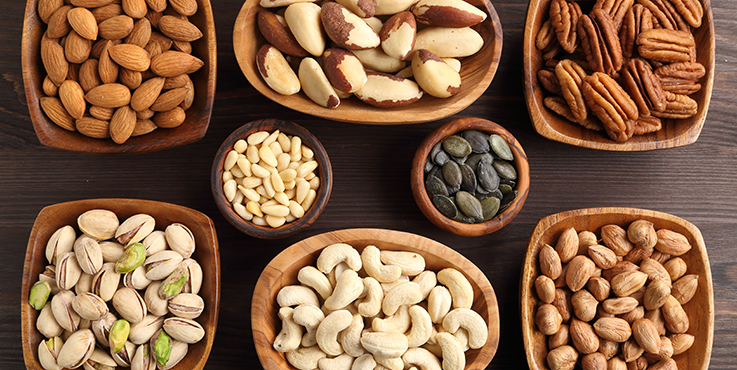
6. Soy products
Soy products include tofu, soy milk, soy beans and edamame beans. Some evidence shows that regularly eating soy products can help to slightly reduce 'bad' LDL cholesterol and triglycerides7,9,10.
Tip: Choose soy products that are close to how they are found in nature, like soy beans, plain unsweetened soy milk and unflavoured tofu.
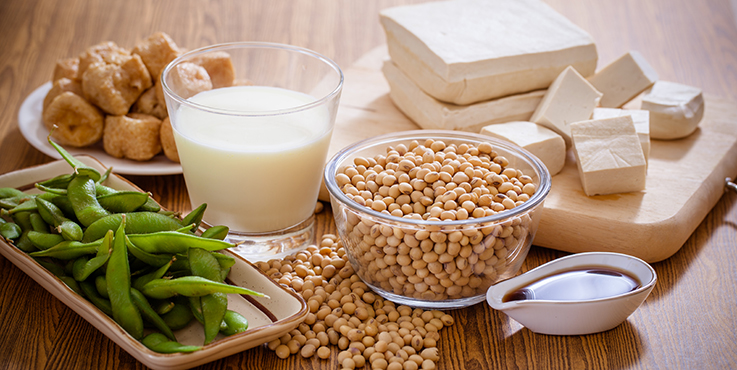
7. Plant sterols
Low levels of plant sterols are found in in fruits, vegetables, nuts and cereals. However, some foods (like margarine) have plant sterols added. Eating foods that contain plant sterols as part of a balanced diet can reduce 'bad' LDL cholesterol. This is because they reduce your absorption of cholesterol11.
Tip: Foods with plant sterols added are only effective if you eat them regularly. Remember that these foods are usually much more expensive than everyday foods and your overall diet matters most.
No single food
There is no single food that will help to lower your cholesterol and it's important to focus on the quality of your overall diet.
A diet rich in plant foods like vegetables, fruit, legumes, whole grains, nuts and seeds will help to manage your cholesterol and reduce your risk of heart disease.





























0 Comments